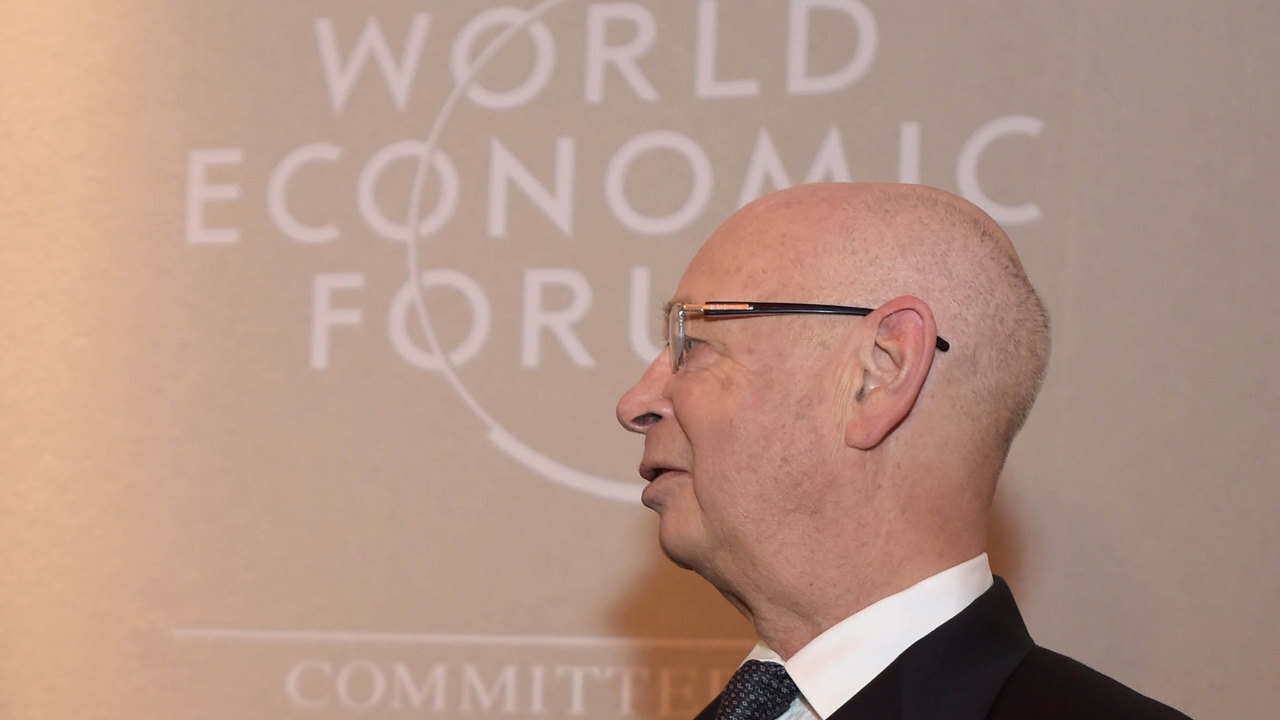Environmental, social, and governance (ESG) scores are an insidious mechanism by which a cabal of ideologically aligned influential interests working through unelected supranational organizations are attempting to “reset” the global financial system to their advantage. At its core, this emerging design circumvents national sovereignty, free markets, and individual rights by altering traditional financial methods of assessing risk and allocating capital and credit. This attempted shift from “shareholder capitalism” to a “stakeholder collectivism” model hinges upon assigning companies, and soon individuals, arbitrarily determined ESG social credit scores. These scores mandate subjective and politically motivated commitments to “climate” and “social justice” objectives, which draw heavily from the United Nations-sponsored Sustainable Development Goals.[1]
Essentially, ESG operates by punishing poorly scored companies with reduced or altogether eliminated access to capital and credit, while highly scored companies receive substantial capital in-flows, in addition to tax breaks, grants, access to “special financial vehicles,” preferential contracting, and potentially other yet-to-be-defined advantages.[2] Ultimately, these measures are designed to centralize power and wealth in the hands of unelected technocrats, central bankers, regulators, and globalist institutions. The full institutionalization of ESG—internationally and domestically—would represent a major step towards consolidating a unitary global governance model, ultimately causing the dissolution of free markets, national sovereignty, due process under the law, and individual liberty.[3]
The following is a brief summary of how the banking industry has used its coercive market power to weaponize ESG compliance.
Along with asset management firms, insurance conglomerates, regulatory authorities, central banks, and international organizations, powerful financial institutions have been a primary driver of the ESG movement.[4] While asset management titans such as BlackRock dominate the allocation of capital and debt—reducing investment in non-ESG compliant companies and infusing ESG champions with substantial capital—banks operate in tandem by limiting or altogether refusing to service or lend to companies deemed to be lacking in ESG adherence.
According to a report published in 2021 by Morningstar’s ESG research arm, Sustainalytics, most major banks are already screening businesses by their ESG scores, rather than traditional financial metrics. The publication notes, “Most major banks screen their lending practices against specific ESG risks…and many embrace negative or positive screening for potential corporate lending transactions or project finance transactions. Negative screening and norm-based screening involve the exclusion or avoidance of transactions not aligned with environmental, social, and ethical standards.”[5] Sustainalytics goes on to give examples of entities that are often screened out, which include weapon manufacturers, tobacco sellers, and fossil fuel producers.
An academic paper published by The Review of Financial Studies in November 2021 corroborates the claims by Sustainalytics, finding strong evidence in support of the causal relationship between ESG-focused banks and their lending activities. The authors conclude, “Specifically, banks are more likely to grant loans to borrowers with ESG profiles similar to their own and positively influence the borrower’s subsequent ESG performance.”[6]
Another academic paper published in October 2022 finds evidence that sustainability-linked loans (SSLs)—in which the loan contract terms are contingent upon a borrower’s ESG performance—have grown exponentially. Moreover, the authors illustrate that lenders are incentivized by profit, rather than the stated goals of ESG, concluding, “Overall, our findings suggest that the incentives for entering SLL contracts are likely to lie on the side of the lenders, who capture most of the benefits from such loans. These findings question the intended objectives of SLLs.”[7]
Essentially, major financial institutions are using their monopolistic power to enforce ESG compliance from their customers, suppliers, and business partners, while likely enriching themselves in the process. Bank of America Chairman and CEO Brian Moynihan—also chairman of the World Economic Forum’s (WEF) International Business Council, one of the primary architects of the Great Reset—is one of ESG’s most ardent advocates. During the WEF’s 2022 Davos Summit, Moynihan committed to using the financial clout of his entire organization, including individual account holders, stating, “200,000 people, a three trillion-dollar balance sheet, 60 billion in expenses; you start aiming that gun, and you take that across all these companies, it is huge… [the companies] delivering on the metrics will get more capital, the ones that won’t will get less.” Moynihan went on to discuss how Bank of America and its allies will make purchasing decisions for their supply chains based upon net-zero carbon commitments, and even resorted to threatening his bank’s individual account holders to get on board.[8]
Regardless of their actual motivations, banks around the world have united in pursuit of ESG’s overarching objectives, with a particular emphasis on achieving net-zero carbon dioxide emissions by 2050 with intermediate targets set for 2030. The United Nations-sponsored Net-Zero Banking Alliance—which includes Moynihan’s Bank of America, Citi, JP Morgan Chase, Morgan Stanley, Goldman Sachs, and Wells Fargo, among many others—is committed to completely decarbonizing the planet, regardless of the incalculable costs to society. This consortium of the world’s most powerful 122 banks represents approximately 40 percent of global banking assets, with $72 trillion in assets under management.[9]
Though the blatant discrimination against businesses and corporate entities is highly concerning and unethical, such practices will almost certainly cascade to small businesses and individuals with alacrity. A 2021 publication by FICO—the service most commonly used to evaluate the credit worthiness of individuals and small businesses—makes this glaringly apparent. The article predicts, “In financial institutions, much of the ESG agenda is delivered at the corporate level, but in 2022 we expect to see an increased focus on bringing ESG data into more granular lending and investment decisions. This will require increased innovation in the use of alternative data across all kinds of lending. One example would be the inclusion of property energy ratings data in mortgage valuation and decisioning, and CO2 emission data for small businesses.”[10]
Clearly, banks are already preparing to assign individuals social credit scores, which will in turn determine their suitability for loans, mortgages, investments, and even the ability to hold a bank account. Ultimately, a “bad” personal ESG score would severely limit an individual’s ability to live freely in the United States, eerily reminiscent to China’s social credit scoring system that has been instrumental in China’s transition into a totalitarian state.
Equally worrisome is the growing clamor for “open banking,” which would dovetail effectively with ESG to eliminate the last vestiges of individual privacy altogether. Open banking is a relatively new banking practice that transfers customers’ confidential financial information and transaction history to external third parties, such as financial technology companies or other banks. Many are already advocating for using open banking to push ESG goals onto everyday consumers. A 2021 article from International Banker explains, “even from one single transaction, a huge amount of information can be derived about the amount spent on energy, travel or shopping. By aggregating, categorising and analysing billions of transactions, open banking enables financial institutions to unlock more meaning from their customer data. Banks and fintechs can identify patterns and provide businesses and individuals with actionable insights. These can then be used to help change behaviour for the better — shining a spotlight on how they can reduce carbon footprint.” The author concludes, “By harnessing open banking, banks are becoming the agents of change.”[11]
Banks are not supposed to be “agents of change” capable of engineering society according to the whims of global elites. They are service providers, and should be regulated as such to prevent discrimination based upon one’s non-financially material personal values and choices. In this regard, recent efforts have been made to rein in the banking industry, such as a coalition of 19 U.S. states leading an investigation into six major U.S. banks that adhere to the UN’s ESG goals.[12] They rightfully claim that by ceding authority to an international body, banks are putting U.S. companies at the mercy of globalist institutions and elites.
Though this effort is laudable, it is only one small step towards preventing banks from fundamentally altering the fabric of American society. Much more needs to be done, if we are to prevent the wholesale destruction of individual liberties, free markets, and national sovereignty.
[1] United Nations, “Sustainable Development,” Department of Economic and Social Affairs, accessed July 12, 2022, https://sdgs.un.org/goals
[2] Mark Bergman et al., “Introduction to ESG,” Harvard Law School Forum on Corporate Governance, August 1, 2020, https://corpgov.law.harvard.edu/2020/08/01/introduction-to-esg
[3] For more information on the basics of ESG, see: Justin Haskins and Jack McPherrin, “Understanding Environmental, Social, and Governance (ESG) Metrics: A Basic Primer,” The Heartland Institute, January 26, 2022, https://www.heartland.org/publications-resources/publications/understanding-environmental-social-and-governance-esg-metrics-a-basic-primer
[4] Jack McPherrin, “ESG: Primary Architects and Implementers,” The Heartland Institute, September 2022, https://www.heartland.org/_template-assets/documents/esg/PolicyTipSheetESG4.pdf
[5] Morningstar Sustainalytics, How Sustainable Finance is Shaping Change in Banking, EBook, Accessed November 8, 2022, https://connect.sustainalytics.com/scs-ebook-how-sustainable-finance-shaping-banking
[6] Joel Houston and Hongyu Shan, “Corporate ESG Profiles and Banking Relationships,” The Review of Financial Studies, November 2021, https://academic.oup.com/rfs/article-abstract/35/7/3373/6433684
[7] Kai Du et al., “Who Benefits from Sustainability-linked Loans?” October 29, 2022, https://papers.ssrn.com/sol3/papers.cfm?abstract_id=4260717
[8] Jack McPherrin, “A Global ESG System Is Almost Here: We Should Be Worried,” The Epoch Times, June 1, 2022, https://www.theepochtimes.com/a-global-esg-system-is-almost-here-we-should-be-worried_4501543.html
[9] United Nations Environment Programme, “Net-Zero Banking Alliance,” Accessed November 9, 2022, https://www.unepfi.org/net-zero-banking/
[10] Doug Craddock, “Lending Predictions 2022: From BNPL to ESG (and More),” FICO, December 15, 2021, https://www.fico.com/blogs/lending-predictions-2022-bnpl-esg-and-more
[11] Rafa Plantier, “Open Banking: A Game Changer for Sustainability,” International Banker, October 22, 2021, https://internationalbanker.com/banking/open-banking-a-game-changer-for-sustainability/
[12] Kelly Laco, “19 states investigate major US banks for pushing ESG policies ‘killing’ American companies,” FoxBusiness.com, October 19, 2022, https://www.foxbusiness.com/politics/19-states-investigate-major-us-banks-pushing-esg-policies-killing-american-companies
Jack McPherrin (jmcpherrin@heartland.org) is a managing editor of StoppingSocialism.com, research editor for The Heartland Institute, and a research fellow for Heartland's Socialism Research Center. He holds an MA in International Affairs from Loyola University-Chicago, and a dual BA in Economics and History from Boston College.






